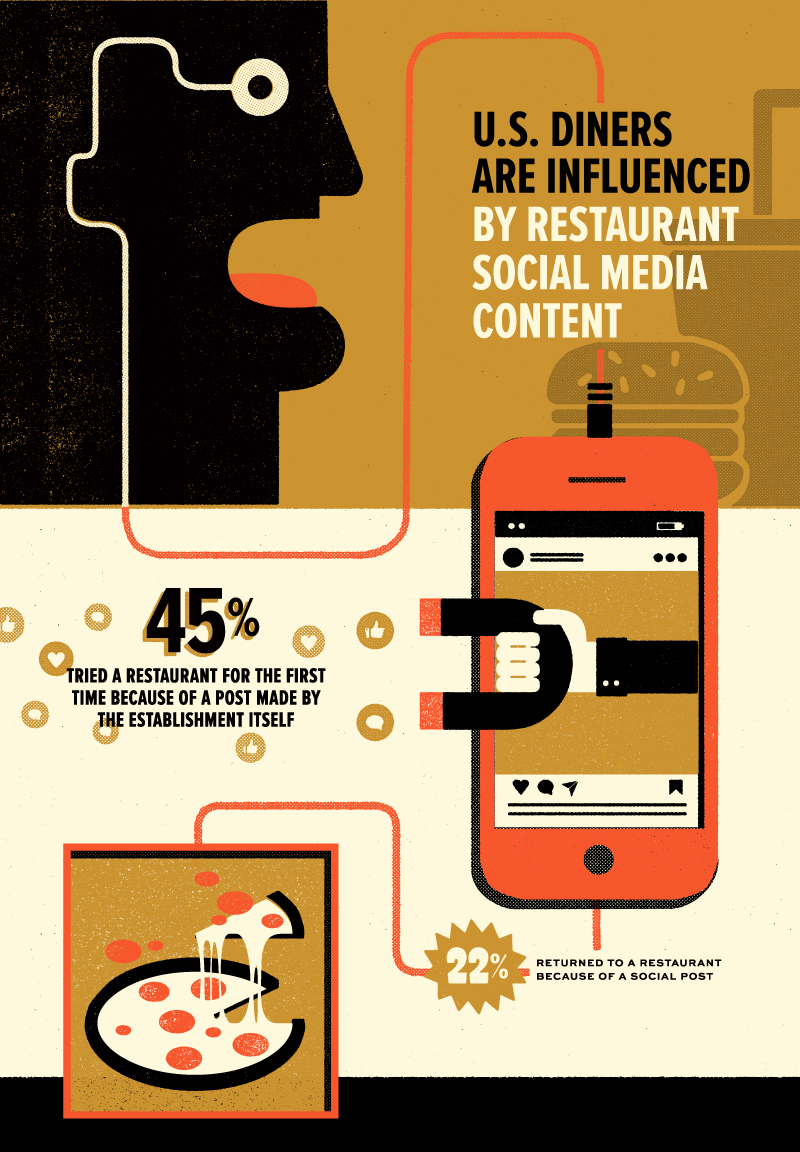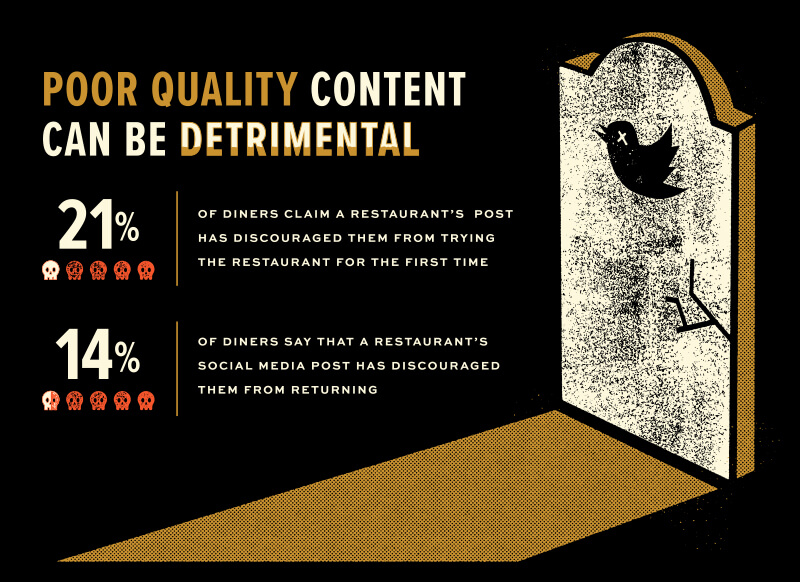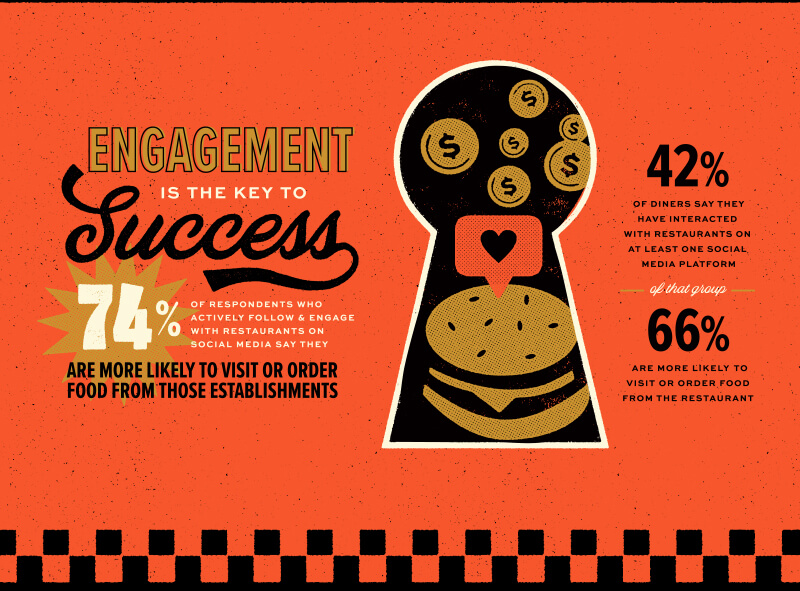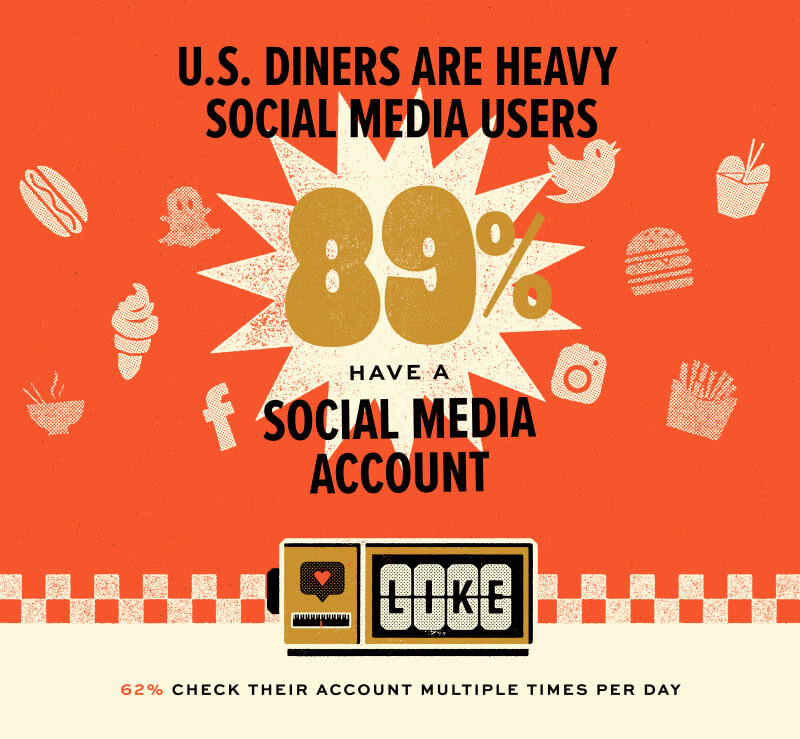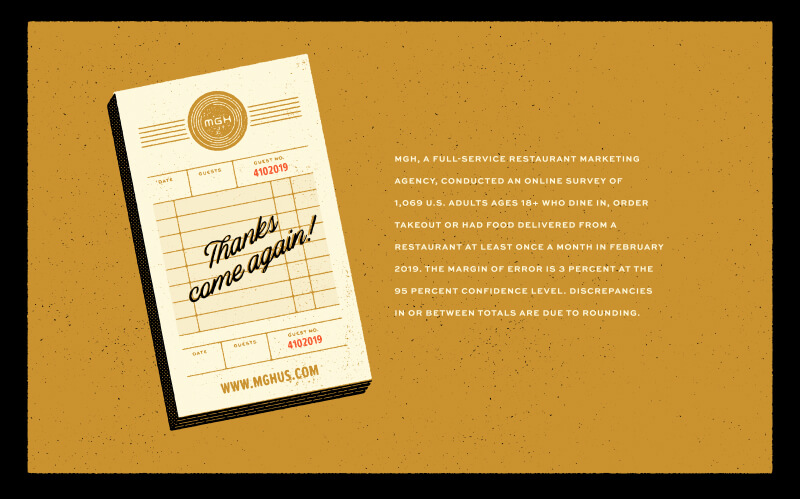Survey Finds Nearly 50% of U.S. Diners Have Tried a New Restaurant Thanks to Social Media
MGH, a full-service restaurant marketing agency that also specializes in restaurant website development, has released the results of a study it conducted in February that examined how influential a brand’s social media marketing can be when it comes to driving restaurant trial and customer loyalty. The survey determined that nearly half (45%) of U.S. diners said they’ve tried a restaurant for the first time because of a social media post made by the establishment itself. Further, 22% said a restaurant’s social post enticed them to return.
On the other hand, 21% claim a restaurant’s social media posts – which includes poor quality content and frequency (too few or too many) – have discouraged them from ever trying the restaurant.
Results from the study demonstrated that positive restaurant-to-consumer social media engagement often leads to increased customer visits. Of respondents who actively follow and engage with restaurants on social media, 74% say they are more likely to visit or order food from those establishments.
On the other hand, 21% claim a restaurant’s social media posts – which includes poor quality content and frequency (too few or too many) – have discouraged them from ever trying the restaurant.
Results from the study demonstrated that positive restaurant-to-consumer social media engagement often leads to increased customer visits. Of respondents who actively follow and engage with restaurants on social media, 74% say they are more likely to visit or order food from those establishments.
The survey found that 89% of U.S. diners have a social media account, while 62% of U.S. diners say they log on to their social media accounts several times per day.
What can restaurant marketers learn from the findings of MGH’s survey? Here are three tips to keep in mind when crafting your brand’s marketing strategy:
1. Every single piece of your brand’s social content matters
When creating an editorial calendar, mixing in product photography and promotional messaging, you should consider just how valuable each post can be.
With nearly half of the survey respondents putting such a heavy emphasis on a post’s ability to sway their hunger-driven decisions, restaurants with a limited social presence need to adjust their marketing mix as a response.
If social media content is such an influential part of trial and creating repeat customers, why wouldn’t it have an equally important amount of resources dedicated to making it the best it can be?
2. Hire the right people for the job
Sometimes, brands can find themselves in trouble after a “social media fail.” Maybe it was a poor attempt at humor, an improper use of a trending hashtag, or even an unfortunate spelling mistake. Whatever the case, it’s always met with the same go-to joke as a response:
“That brand needs to fire its social media intern.”
While there are plenty of things wrong with this statement, chief among them is the fact that interns are not running social media for big brands like McDonald’s, Pizza Hut or Taco Bell.
With nearly a quarter of respondents claiming a restaurant’s social media post has discouraged them from trying it for the first time, shouldn’t you be trusting such a big responsibility to someone with the experience and ability to match?
The top brands and agency partners of the world have dedicated their best content creators, copywriters and skilled marketers to their social media efforts. Because it’s just that important.
3. Engagement is the key to success
Your brand has established a consistent, quality posting plan to entice early customers, as well as help potential new ones find your restaurant. But what are you doing to keep your loyal patrons coming back.
Nearly three quarters of survey respondents who actively follow and engage with restaurants on social media said they are more likely to visit or order food from those establishments. So, if your brand is producing social media content that encourages fans to participate in the conversation, it’s probably a good bet that you’re going to see a bump in business as well.
Not all engagement on social media is positive either, and it’s important to keep in mind that this is not a bad thing. Using social media as a customer service tool during times of trouble can be equally as effective in turning a customer into a lifetime fan.
Steak didn’t turn out right? Service was less than stellar? If someone took the time to let you know about your brand’s issue on social, you owe it to them to do everything you can to make it right. Onlookers will notice as well.
